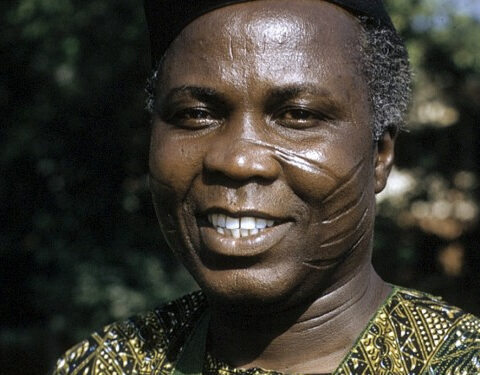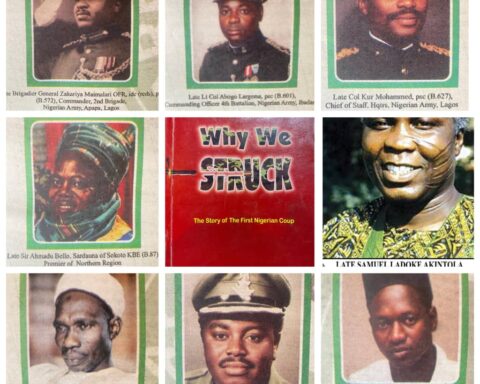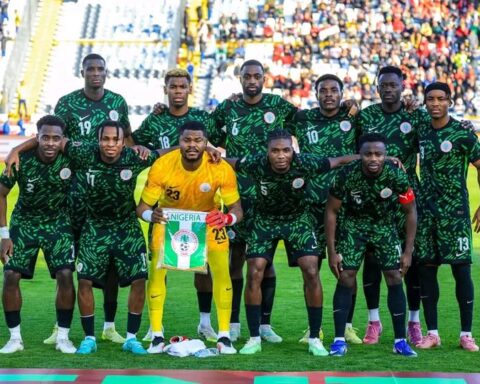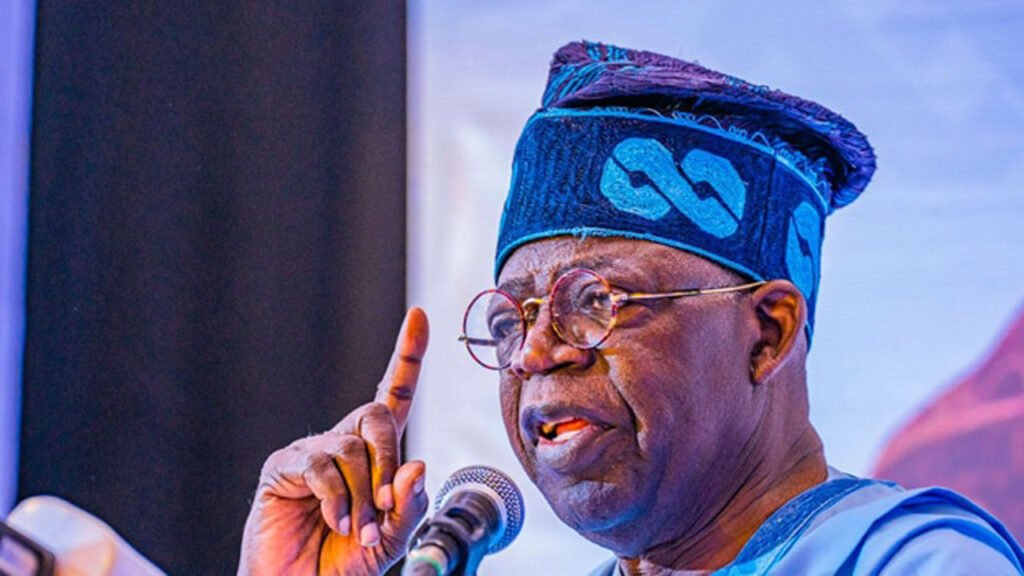The Words Rendered:
NIV:
21 She named the boy Ichabod, saying, “The Glory has departed from Israel”—because of the capture of the ark of God and the deaths of her father-in-law and her husband. 22 She said, “The Glory has departed from Israel, for the ark of God has been captured.”
GW:
21 She named the boy Ichabod [No Glory], saying, “Israel’s glory is gone,” because the ark of God had been captured and because her father-in-law and her husband ⌞died⌟. 22 “Israel’s glory is gone because the ark of God has been captured,” she said.
TPT:
21 She named the baby Ichabod, meaning “Where is the glory?” for she said, “Israel’s glory is gone!” She said this because the ark of God had been captured and her father-in-law and husband were dead. 22 She cried out, “The glory of God has left Israel, for the ark of God is taken!”
NLT:
21 She named the child Ichabod (which means “Where is the glory?”), for she said, “Israel’s glory is gone.” She named him this because the Ark of God had been captured and because her father-in-law and her husband were dead. 22 “The glory has departed from Israel,” she said, “for the Ark of God has been captured.”
GNT:
21 She named the boy Ichabod, explaining, “God’s glory has left Israel”—referring to the capture of the Covenant Box and the death of her father-in-law and her husband. 22 “God’s glory has left Israel,” she said, “because the Covenant Box has been captured.”
Amplified:
21 And she named the boy Ichabod, saying, “The glory has departed from Israel,” because the ark of God had been taken and because of [the deaths of] her father-in-law and her husband. 22 And she said, “The glory has left Israel, for the ark of God has been taken.”
The Message:
21 She named the boy Ichabod (Glory’s-Gone), saying, “Glory is exiled from Israel since the Chest of God was taken.” (She was referring to the capture of the Chest of God and the deaths of her father-in-law and her husband.) 22 She said, “Glory is exiled from Israel, God’s Chest is taken.”
The air hangs thick with the acrid smell of defeat and death. Shiloh, the place where God’s presence dwelt among the trembling curtains of the Tabernacle, is shattered. The Philistine army, drunk on victory, carries away the Ark of the Covenant – the golden chest housing the stone tablets, the very footstool of the Unseen King, the symbol and seal of His covenant presence, His Kabod – His Glory. Eli, the aged, blind High Priest, hears the news and falls backward, his neck broken. Phinehas, his corrupt son, lies dead on the battlefield beside his brother Hophni. And Phinehas’s wife, unnamed, her labor pains tearing through her as the screams of the city tear through the air, delivers a son amidst the ruins. In her agony, physical and spiritual, she names him: “Ichabod.” “Where is the glory?” (TPT). “No Glory.” (GW). “Glory’s-Gone.” (MSG). “The Glory has departed from Israel.” Her dying breath gasps the unspeakable truth: “For the Ark of God has been captured.” “Because the Covenant Box has been taken.” “God’s Chest is taken.” It’s not just a military defeat; it’s a theological cataclysm. The tangible symbol of Yahweh’s presence, the heart of Israel’s identity, the source of their hope and power, is gone. The Kabod – the heavy, awe-inspiring, life-giving weight of God’s manifest presence – has lifted. Ichabod’s cry is the sound of a soul, a people, a nation realizing they are utterly, terrifyingly abandoned. We stand exposed with them. We know what it is to feel the chilling vacuum where God’s presence once warmed us. We’ve created our own Ichabod moments – moments where our faith feels like an empty ritual, our prayers echo in a silent heaven, our sacred symbols lose their power, and the crushing weight of loss, sin, or despair makes us gasp, “Where is the glory? Has it departed from me?” We are creatures forged for divine intimacy, yet capable of actions, complacency, or idolatry that drives the sense of that presence away. The exposure is absolute: we are vulnerable to spiritual desolation, to the chilling reality of feeling forsaken.
This wasn’t merely bad luck; it was the culmination of profound failure. Eli’s weak leadership allowed his sons, Hophni and Phinehas, to desecrate the priesthood – stealing sacrifices, sleeping with women at the Tent of Meeting (1 Samuel 2:12-17, 22). They treated the holy Ark like a magical talisman, dragging it into battle for victory without repentance or seeking God’s will (1 Samuel 4:3-4). The people trusted the symbol (the Ark) more than the Substance (God Himself). Their faith was external, superstitious, devoid of heart-obedience. The capture of the Ark was God allowing the consequences of their hollow religion to reach their devastating conclusion. The Glory departs when the vessel meant to carry it is corrupted, when the symbol replaces the Savior, when ritual trumps relationship. We are exposed: how often do we mistake religious activity for genuine connection? How often do we cling to forms, traditions, or icons, hoping they will save us, while our hearts are far from God? How often do we treat God like a cosmic vending machine or a lucky charm, invoking His name for our agendas rather than submitting to His will? Ichabod is the terrifying fruit of such faithlessness.
History echoes with Ichabod’s cry. The destruction of Solomon’s Temple by Babylon in 586 BC was the ultimate fulfillment. Ezekiel’s vision (Ezekiel 10) depicts the Kabod lifting from the Temple before its destruction – God departing His defiled house. The Jewish exiles by the rivers of Babylon wept, not just for lost homes, but for the palpable absence of God’s glory from Zion. Their lament, “How shall we sing the Lord’s song in a foreign land?” (Psalm 137:4), resonates with Phinehas’s wife’s despair. Centuries later, Jesus wept over Jerusalem: “Look, your house is left to you desolate” (Matthew 23:38). The Second Temple, magnificent but spiritually hollow, would soon be destroyed, another Ichabod moment. Think of St. John of the Cross writing of the “Dark Night of the Soul” – not punishment for sin like Israel’s, but a profound spiritual desolation experienced even by the devout, where the felt sense of God’s presence vanishes, leaving only faith’s stark obedience in the darkness. It’s a personal Ichabod, where the inner Ark feels captured. Or Dietrich Bonhoeffer, imprisoned by the Nazis, witnessing the German church’s complicity and compromise, feeling the profound absence of God’s glory in a nation claiming Christian heritage while perpetrating genocide. His letters from Tegel prison grapple with God’s silence amidst the horror.
Now, see a Pastor in Maiduguri, Nigeria. Boko Haram has burned his church, scattered his flock, killed members of his family. The militants mock, “Where is your God now?” As he surveys the ashes, the words of 1 Samuel 4:21 (GNT) sear his soul: “God’s glory has left Israel.” Has it left this place? Has the Ark been captured? His grief echoes Ichabod. Yet, in the rubble, he gathers the remnant. They have no building, no pulpit, no Ark – only the promise: “Where two or three gather in my name, there am I with them” (Matthew 18:20). The Kabod is not in a box; it is in the presence of the Risen Christ among His suffering people. Or picture Anya, in a secularized corner of Stockholm. She grew up in a grand cathedral, now mostly a tourist museum. The liturgy feels empty, the faith of her ancestors a relic. The message of Ichabod (MSG: “Glory is exiled from Israel”) feels descriptive of her culture, her own heart. “Where is the glory?” The Ark of vibrant faith seems captured by indifference and doubt. Yet, a tiny flame flickers – a longing for the Substance beyond the faded symbol. Or consider the disillusioned youth in Tehran, Iran, raised amidst the rigid structures of state religion that feel oppressive and hollow. They see the gap between official piety and lived corruption. Their whispered question, echoing across clandestine gatherings or digital spaces, is Ichabod: “Where is the glory? Has it departed?” They seek the true Kabod, not the captured Ark of a compromised system.
Listen, soul, to the homily sung through this ancient grief and our modern ache:
“Abide with me; fast falls the eventide; / The darkness deepens; Lord, with me abide; / When other helpers fail and comforts flee, / Help of the helpless, O abide with me.” (Henry F. Lyte). This is the prayer against Ichabod – a plea for the presence not to depart, even as darkness falls. It’s the cry Phinehas’s wife couldn’t make.
Hear T.S. Eliot in The Waste Land: “What are the roots that clutch, what branches grow / Out of this stony rubbish? Son of man, / You cannot say, or guess, for you know only / A heap of broken images…” This captures the landscape of Ichabod – the “broken images” of a faith shattered, the Ark captured, only “stony rubbish” left. Where does life grow now?
Hear the Yoruba lament: “Ile oba t’o jo, ewà lo bukun…” (“The king’s palace that burned, only its beauty is remembered…”). This speaks to the ruin of Shiloh, the beauty of God’s presence remembered only in its devastating absence.
Hear William Cowper’s God Moves in a Mysterious Way: “Ye fearful saints, fresh courage take; / The clouds ye so much dread / Are big with mercy and shall break / In blessings on your head.” This offers the hope beyond Ichabod. Even when the Ark is captured, God is not defeated. His mysterious purposes unfold, sometimes through the very depths of loss.
The Ark’s capture wasn’t the end of God’s story. The Philistines found the captured Ark brought plague, not power (1 Samuel 5). It was returned, humiliatingly, on a cart pulled by cows (1 Samuel 6). God demonstrated His glory was not contained or controlled; it could judge the pagans and return on its own terms. The Kabod was greater than the box that symbolized it. This hints at grace: even in our Ichabod moments, God is not finally absent. He may withdraw the sense of His presence due to sin or to deepen faith, but He remains sovereign. The story points beyond the symbol to the Substance.
So let Ichabod’s cry pierce your soul, but not destroy it:
For you, feeling the chilling absence, wondering if God has departed – Acknowledge the cry. Name your “Ichabod.” Examine your heart. Have you trusted symbols over the Savior? Have hollowed out your faith? The very grief points to your need for the true Glory.
For him, witnessing the corruption of sacred things, the compromise of the church – Lament with tears. Cry “Ichabod!” over the desecration. But remember: God’s glory transcends broken vessels. Seek the Substance, not just the form.
For her, drowning in loss, feeling abandoned by God – Know you are heard. Phinehas’s wife’s cry echoes yours. God sees your ashes. The Ark may seem captured, but the God of the Ark is not defeated. Cling to His promises in the dark.
For us, a people navigating spiritual desolation in a broken world – Weep for the Ichabod moments. Repent of hollow religion. Long for the true Kabod. Support each other in the wilderness seasons.
For every seeking soul, yearning for a glory you’ve never known – The Ark was only a shadow. The true Glory awaits you.
And the true Glory, the ultimate answer to Ichabod’s cry, is Jesus Christ. He is the true Tabernacle (John 1:14), the embodiment of God’s Kabod: “We have seen his glory, the glory of the one and only Son, who came from the Father, full of grace and truth” (John 1:14, NIV). He is the true Ark, the presence of God among us. He was “captured,” crucified, laid in a tomb. On the cross, He cried the ultimate Ichabod: “My God, my God, why have you forsaken me?” (Matthew 27:46). He entered our desolation, bore the abandonment we deserved. But. He rose. The Glory that departed was restored in power, not in a golden box, but in a glorified body. He ascended, and sent the Holy Spirit – God’s presence within His people, not confined to a tent or temple (1 Corinthians 3:16, 6:19). In Christ, the Glory has returned, not just to Israel, but to all who believe. He is the Way back to the Father’s presence. He is the Truth that exposes hollow religion and reveals true Glory. He is the Life – the indwelling presence of God that can never be finally captured or lost. Ichabod is answered in Emmanuel: “God with us.” To know Him is to possess the unfading, indestructible Glory within.
Prayer:
O God of Unfading Glory, Who Dwells in Unapproachable Light,
Yet who drew near in Tabernacle shadow, and ultimately in Flesh,
We stand with Phinehas’s wife in the ruins of our own making,
Echoing the cry that chills the soul: “Ichabod! Where is the Glory?”
We confess the ways we have driven Your presence away:
Trusting the symbol over the Substance,
Performing the ritual without the relationship,
Seeking Your hand more than Your face,
Hollowing out faith until only the form remained.
We have created Ichabod moments in our hearts, our homes, our churches.
We are exposed, O Lord, creatures of dust craving Your weighty presence,
Yet capable of actions that cause it to lift.
Yet Your story did not end at Shiloh.
The Ark returned; the Glory proved greater than its captors.
And in Jesus, You answered Ichabod with the thunder of resurrection.
The true Glory, crucified and forsaken, rose triumphant,
And poured out His Spirit to dwell within the broken vessels of our lives.
So we cry out from the ruins:
For the one who knows Your Son but walks in a season of desolation, feeling Your absence,
Revive their spirit! Remind them the indwelling Glory – Christ in them – cannot be finally captured or extinguished. Let them feel the promise of Your nearness even in the dark. Open their eyes to see Jesus, the embodiment of Glory, their ever-present Hope. His Spirit is the guarantee.
For the one who knows only Ichabod – the ache of absence, the ruin of empty religion, the despair of life without Your felt presence,
Here is the Glory: Jesus Christ.
Look to Him! He is the true Ark, the true Temple, the true Presence of God. He bore your abandonment on the cross so you could be brought near. He rose to pour His Spirit into all who believe. Turn from hollow substitutes. Surrender to Him. Receive His forgiveness, His life, His indwelling Glory. Find in Him the Way back to the Father, the Truth that shatters despair, the Life filled with the eternal, unquenchable Kabod of God. The Glory has returned. Come home.
Breathe upon us, O Spirit of Glory.
Dwell within us, unconquerable Presence.
May our lives, even amidst brokenness, declare:
The true Ark lives; the Glory has come, and will never depart His own.
Through Jesus Christ, our Emmanuel, our True Ichabod answered.
Amen.

